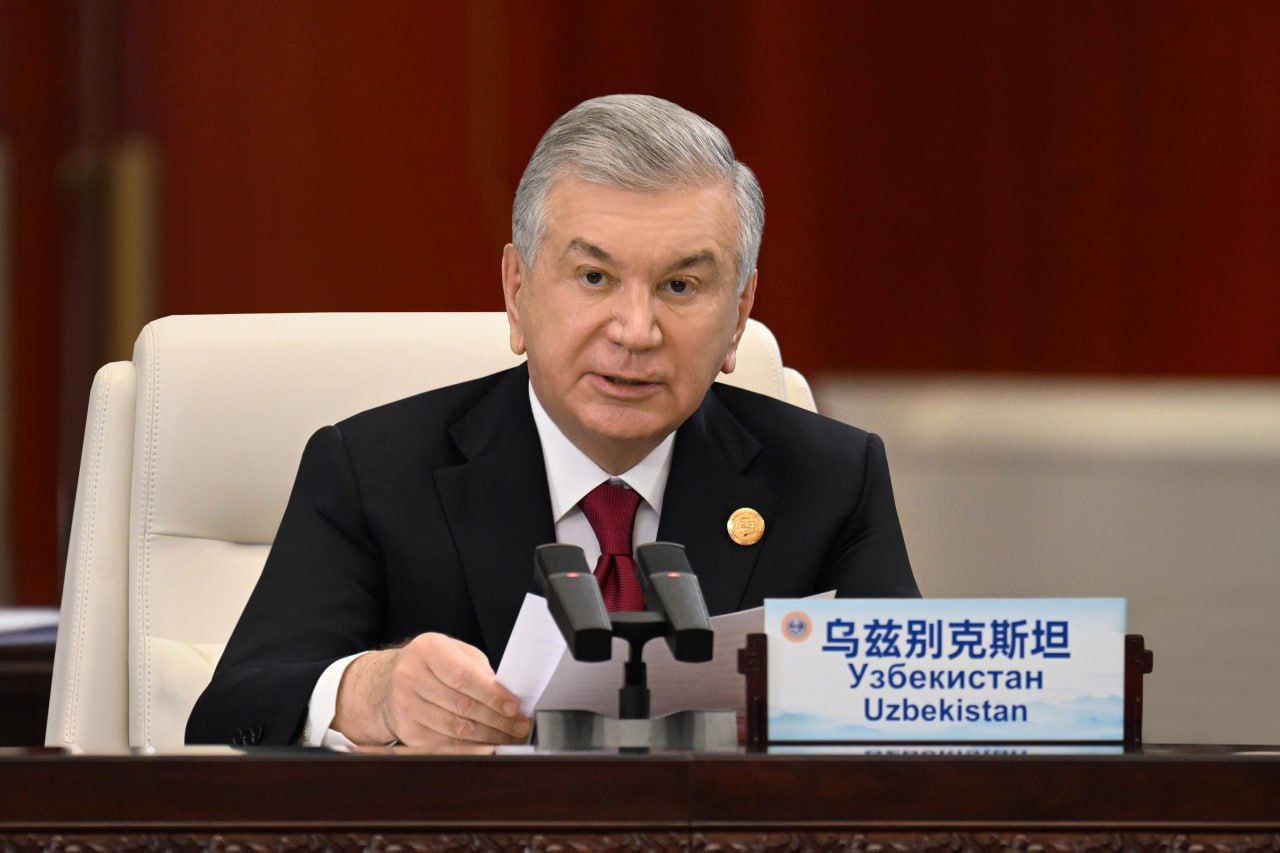BAKU, Azerbaijan, September 4. The Shanghai Cooperation Organization (SCO) Summit, taking place in Tianjin, China, from August 31 through September 1, 2025, underscored Uzbekistan’s rising star in the strategic landscape of Central Asia and its footprint on the global stage. During the sessions, President Shavkat Mirziyoyev put his cards on the table, highlighting Tashkent’s bustling role and throwing out some solid proposals to boost economic ties, pave the way for transport and logistics infrastructure, and tighten the screws on regional security.
The SCO, which unites nine member states, three observer states, and 14 dialogue partners, accounts for about one-third of global GDP and approximately 20 percent of international trade. As one of the organization’s founding members, Uzbekistan has in recent years become a key initiator of strategic projects within the SCO, promoting approaches focused on regional economic integration, the creation of new transport corridors, and the development of platforms for investment and technological cooperation.
Great care was taken to roll out transport projects that could turn the region’s transit routes on their head. Central to these initiatives is the construction of the “China–Kyrgyzstan–Uzbekistan” railway, which will become the shortest overland route from China to Central and South Asia via the Trans-Afghan corridor. According to forecasts, the annual cargo transit along this route will generate up to $200 million for the republic, while delivery times will be reduced from 45–70 days to a significantly shorter period, lowering business costs and enhancing the competitiveness of Uzbek products on international markets.
“For us, creating efficient transport routes that provide reliable connections to global corridors is vital. In this context, the ‘China–Kyrgyzstan–Uzbekistan’ railway project is of particular importance. In the future, linking this route with the Trans-Afghan corridor will contribute to forming a unified transport network across the SCO space,” President Mirziyoyev emphasized during a “SCO Plus” meeting.
This initiative is a game changer, not just for the economy but also for keeping the geopolitical waters calm. The establishment of North–South and East–West corridors engenders a framework for enhancing regional interconnectivity, mitigating the potential for disputes regarding transit pathways, and unlocking novel avenues for ingress to maritime facilities on the Persian Gulf and the Indian Ocean.
“We see great opportunities for coordinating efforts to form a ‘Unified SCO Transport Space’ and integrating it with the Belt and Road Initiative. This includes creating new multimodal networks, digital platforms, and ‘green’ corridors,” the head of state highlighted.
In the economic sphere, Tashkent threw its hat in the ring by suggesting the creation of fresh multilateral platforms and tools to grease the wheels of cooperation. These include the SCO Regional Center for Critical Materials, an Energy Consortium for the development of “green” energy, a network of venture companies and funds to support innovative projects, and an electronic portal for establishing business contacts and attracting investment. These initiatives aim to strengthen production and logistics chains, stimulate mutual investments, and increase the region’s technological self-reliance.
Uzbekistan's fiscal engagement in collaborative ventures, notably its equity in the sanctioned capital of the "China–Kyrgyzstan–Uzbekistan" railway, underscores the nation's substantive commitment to executing strategic imperatives. The optimization of logistical frameworks and the deployment of digital ecosystems position Uzbekistan as a pivotal nexus for transportation and capital infusion within the Central Asian region.
Security is the name of the game in Tashkent’s strategic playbook. Initiatives to reconvene the Assembly of Interior Ministers, amend the Accord on Crime Mitigation, and formulate a Drug Control Strategy extending to 2030 establish the groundwork for an all-encompassing stability framework. The initiation of the SCO–Afghanistan Contact Group facilitates Afghanistan's integration into a synergistic dialogue framework, thereby mitigating the potential for regional destabilization risks. The strategic endeavor to endorse a SCO Declaration on Nuclear Security amplifies regional assurance within the international arena and bolsters global non-proliferation initiatives.
Significant emphasis was placed on President Mirziyoyev’s strategic initiative to incorporate Afghanistan as an observer state within the framework of the SCO. This strategic maneuver underscores Uzbekistan's dedication to enduring geopolitical equilibrium and garnered extensive endorsement from SCO constituents.
“We advocate the consistent expansion of the organization, as the success of the ‘SCO model’ lies in its openness and focus on broad cooperation. We are ready to support the aspirations of states that link their future to the SCO. I am convinced that expanding the circle of dialogue partners, including states from other regions, will help transform the organization into a platform for cooperation with countries of the Global South,” the president emphasized.
The concluding artifacts of the summit—the Tianjin Declaration and the SCO Development Strategy through 2035—establish a robust framework for the enhancement of collaborative synergies. Uzbekistan exemplifies its capacity not merely to engage in SCO mechanisms but also to influence and redefine them. The nation is evolving into a nexus of economic activity, logistical frameworks, and technological innovation within Central Asia, as its strategic initiatives bolster the competitive edge of domestic offerings and fortify collaborative synergies among neighboring states.







